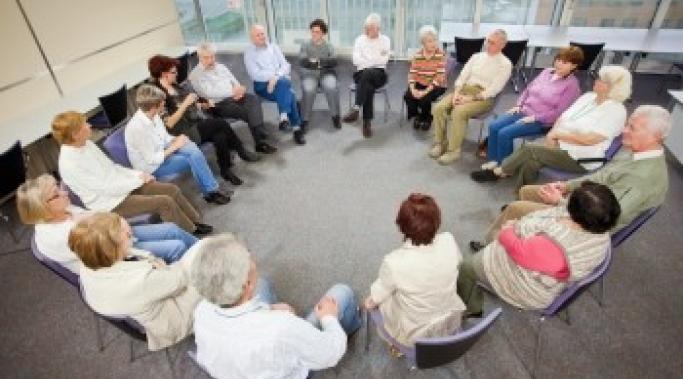I just celebrated a sobriety birthday, an event that always prompts reflection on how I got sober and clean in the first place. I do believe that a power greater than myself, a divine power, is ultimately responsible for me still being alive (Winehouse Death Due to Alcohol Poisoning and Tolerance). That being said, there are some practical components that have been vital to my getting sober and clean and staying that way.
Addiction Treatment
One thing I've learned is to take action in alcohol recovery and stop arguing. Recent well-publicized articles criticizing 12-step programs have been making the social media rounds and set off another flurry of commentary and response (of which I'm a part). I'd like to suggest, however, doing something that in some ways is becoming easier and easier to avoid in the world of instant information--get off the Internet, stop arguing and take action for alcohol recovery.
Whether the program is LifeRing, Alcoholics Anonymous (AA), SMART Recovery, or some other program, the first question of a newcomer is always the same: "Does this addiction recovery program work?" The answer to this simple question varies, depending on who you ask. Yet, there is one factor that can make or break a person's success in any recovery program.
The most recent Diagnostic and Statistical Manual of Mental Disorders (DSM-5), published in 2013, changed the criteria for evaluating substance abuse problems and problems involving compulsive behavior, such as gambling. The DSM-5 includes the word "addiction" for the first time, in reference to pathological gambling, which the manual lists as a "behavioral addiction."
I got sober in a rigorous outpatient treatment program based on confrontational therapy and geared toward adolescents. At nearly 22, I was the oldest client. The program is unorthodox and its founder is a somewhat controversial figure in the mental health treatment community. I have mixed feelings about his methods, but something in that program did get, and keep, me sober where others had failed.
I took my last drink of alcohol (hopefully for good) on February 19, 2007. I smoked my last cigarette (also hopefully for good) on December 31, 2010. In contrast, my friend quit street drugs and alcohol years ago, but she doesn't know the exact dates.
12-step programs emphasize dates. Alcoholics Anonymous, Narcotics Anonymous and Overeaters Anonymous all celebrate sobriety dates, clean dates and abstinence dates, respectively. For me, my sobriety date is extremely important. It commemorates a miraculous day when I was given another chance to live. The day I quit smoking is important to me too, but I might not remember it if it didn't coincide with New Year's. Perhaps I care more about my sobriety date because my struggle with alcohol was much harder. Even so, for the clean and sober folks I know who do not commemorate a specific clean date, (mind you, this is the minority of clean and sober folks I know) it is not because their sobriety isn't important to them.
In one of my recent blog posts, The Best Way to Quit Using Drugs, I discussed various means in which an individual could try to arrest his/her addiction. In response to the article, I had two readers comment with opposing points of view. One raised the point that treatments like Suboxone (Buprenorphine) and Methadone have been used to help treat addiction to opioids. The other reader had a more abstinence-based response and stated that one needs to address his/her addiction by kicking the habit “cold turkey.”
This video provides simple, easy to follow tips for addiction recovery including, having a belief in one's recovery, reaching out for help, and replacing unhealthy behaviors with healthy ones.
If I were to take a poll of 100 recovering addicts and ask them what method they used to get clean I would likely get a number of responses. And that’s the point. The best way to quit using drugs is determined by the addict. What works for one individual may not work for another. The method you take to quit using drugs is best decided by you.
Motivational interviewing has been used for over 25 years to help treat those living with substance abuse and mental disorders. This evidence based practice involves using the five stages of change. This video explores these five stages.







